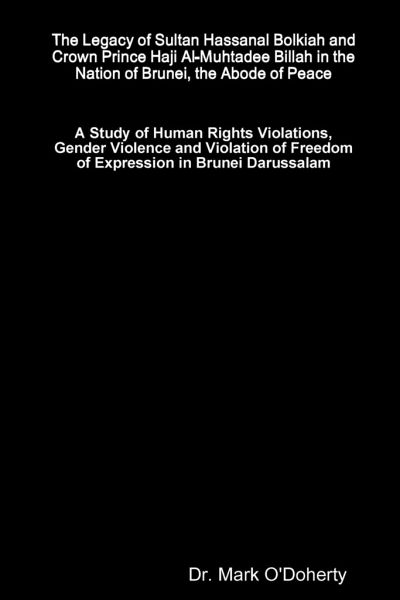Nicht lieferbar

The Legacy of Sultan Hassanal Bolkiah and Crown Prince Haji Al-Muhtadee Billah in the Nation of Brunei, the Abode of Peace - A Study of Human Rights Violations, Gender Violence and Violation of Freedom of Expression in Brunei Darussalam
Versandkostenfrei!
Nicht lieferbar
The human rights situation in Brunei has raised considerable concern in the international community due to Brunei's Syariah Penal Code (SPCO) which went into effect on April 3, 2019 - the law imposing death by stoning for extramarital sex and anal sex; and a wide range of restrictions that discriminate against women and gender minorities, and violates freedom of expression. Although Sultan Hassanal Bolkiah has described a "de facto moratorium on capital punishment" in Brunei - stating that the death penalty would not be enforced in the implementation of the SPCO - the sultan could reverse his ...
The human rights situation in Brunei has raised considerable concern in the international community due to Brunei's Syariah Penal Code (SPCO) which went into effect on April 3, 2019 - the law imposing death by stoning for extramarital sex and anal sex; and a wide range of restrictions that discriminate against women and gender minorities, and violates freedom of expression. Although Sultan Hassanal Bolkiah has described a "de facto moratorium on capital punishment" in Brunei - stating that the death penalty would not be enforced in the implementation of the SPCO - the sultan could reverse his decision on a whim; and the punishments of amputation and whipping could still be used. Even if its harshest provisions are not enforced, the law will serve its evident purpose: to cement discrimination against LGBT people and women. Hence this book endeavours to improve public policy in Brunei; by exploring both social scientific and Islamic approaches, so that human rights and gender equality can be improved in Brunei.



